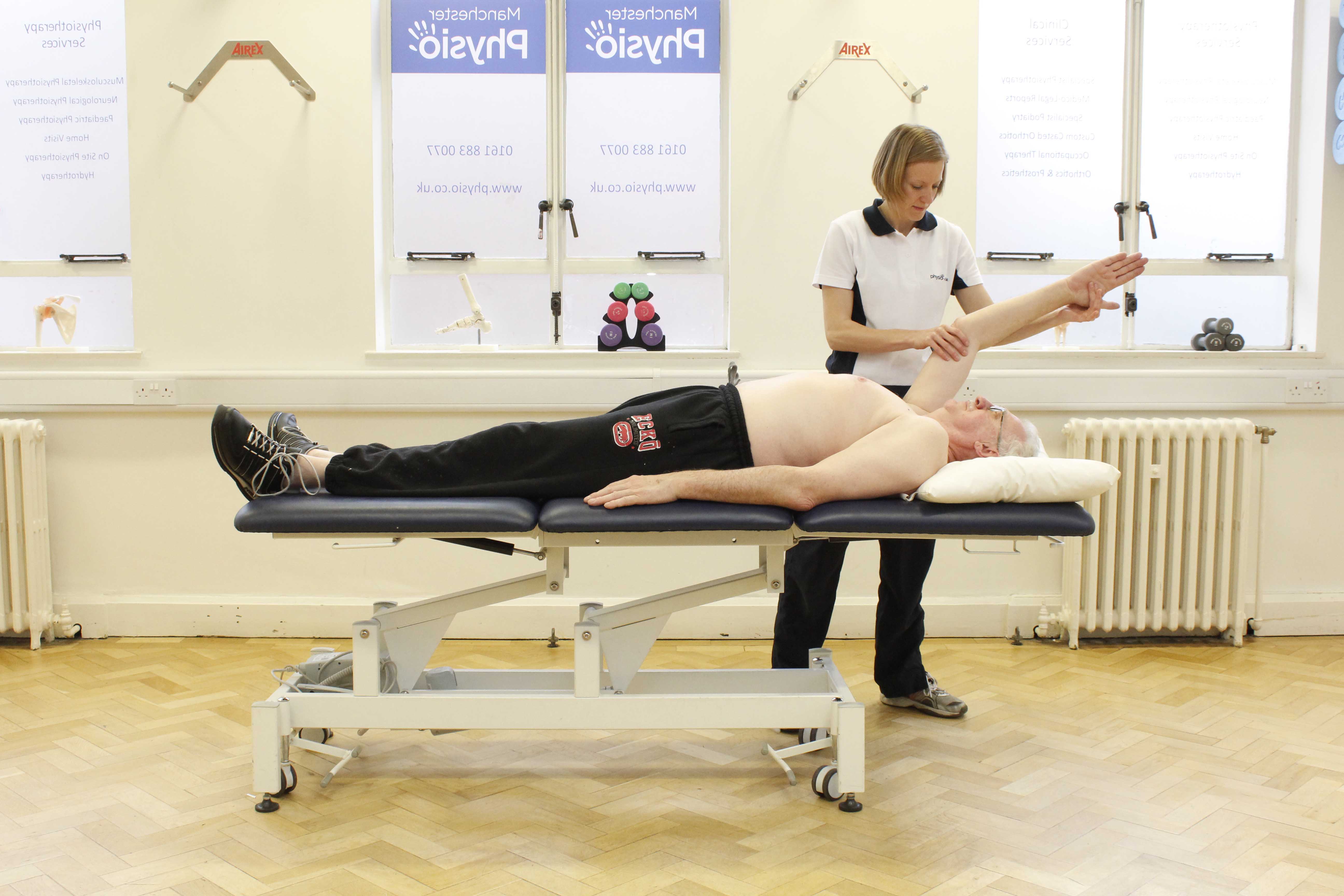Symptoms of a heart attack
Some people may have no symptoms of a heart attack at all. Others experience chest pain that travels to the left side of the jaw, neck or back lasting several minutes. It is often described as a heavy, crushing, squeezing type of pain. Associated symptoms are breathlessness, sweating, light headedness, fatigue and nausea.
Causes of a heart attack
There are a number of risk factors that cause narrowing of the coronary arteries and increase the likelihood of having a heart attack such as cardiovascular disease, increased blood pressure, raised cholesterol levels and age. Smoking, a high alcohol intake, obesity, drug abuse, lack of exercise and stress can also increase the risk of a heart attack. Non-modifiable risk factors such as chronic kidney disease, diabetes and other medical conditions also play a part in the cause of a heart attack and should be monitored via specialist physicians.
 Above: Stretches and mobilisations supervised by an experienced physiotherapist
Above: Stretches and mobilisations supervised by an experienced physiotherapistDiagnosis of a heart attack
A heart attack is diagnosed using blood tests and an electrocardiogram (ECG) which detects heart muscle damage.
Treatment for a heart attack
A heart attack is a medical emergency and requires immediate medical attention. Initially, treatment will involve oxygen and aspirin as instructed by a doctor in the hospital setting. The medical staff will determine the cause of the heart attack and prescribe appropriate cardiac medication to reduce the risk of a further cardiovascular event. The cardiac rehabilitation team will discuss smoking cessation, the importance of a balanced diet, regular exercise and a healthy lifestyle.
Physiotherapy after a heart attack
Individuals who have had a heart attack greatly benefit from physiotherapy once they are medically stable. Your experienced physiotherapist from Physio.co.uk will carry out a thorough physical assessment of your muscle strength, mobility, range of movement and exercise tolerance. The findings of the assessment will be discussed and you will have the opportunity to set specific short and long-term functional goals. Physiotherapy treatment sessions will be focused on achievement of your goals. A general treatment plan for an individual after a heart attack may include:
- Management of risk factors
- Weight management
- Lifestyle advice regarding diet, smoking and alcohol
- Increasing fitness and exercise levels
- Increasing muscle strength, range of movement and flexibility
- Increasing dynamic balance and mobility
The benefits of physiotherapy treatment after a heart attack are:
- Reduced risk of further heart attack
- Increased cardiovascular fitness
- Increased confidence to exercise
- Increased motivation to improve your fitness and lifestyle
- Learn specific exercises to do in the gym or at home
- Learn how to integrate exercise into normal daily life
- Return to functional activities and vocation
Why Physio.co.uk after a heart attack
At Physio.co.uk, we understand that it can be challenging to start or return to exercise after a heart attack. Our specialist physiotherapists offer advice, guidance and encouragement to regain fitness and to reduce your risk of further medical problems.
- No waiting lists
- Treatment at home or in the clinic
- Dedicated, motivated physiotherapists
- Set specific goals and aims of treatment
- Professional liaison with your cardiac rehabilitation team
- Learn appropriate exercises to do at home or in the gym
- Access to specialist gymnasium and swimming pool

 0330 088 7800
0330 088 7800

































